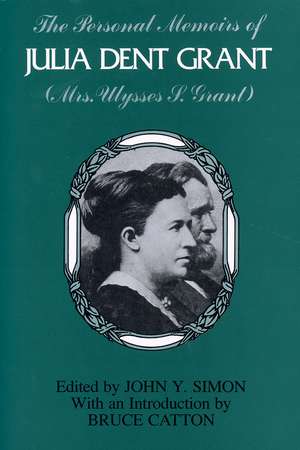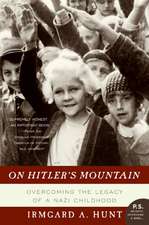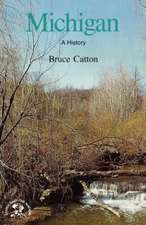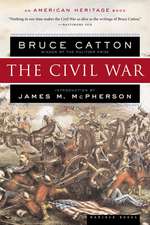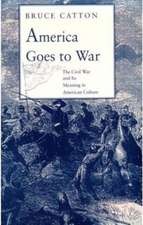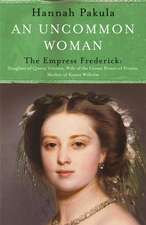The Personal Memoirs of Julia Dent Grant: (Mrs. Ulysses S. Grant): World of Ulysses S. Grant
Editat de John Y Simon Cuvânt înainte de Bruce Catton, John F. Marszalek, Frank J. Williams Prefață de Pamela K. Sanfilippoen Limba Engleză Paperback – 10 apr 1988
Written in the early twentieth century for her children and grandchildren and first published in 1975, these eloquent memoirs detail the life of General Ulysses S. Grant’s wife. First Lady Julia Dent Grant wrote her reminiscences with the vivacity and charm she exhibited throughout her life, telling her story in the easy flow of an afternoon conversation with a close friend. She writes fondly of White Haven, a plantation in St. Louis County, Missouri, where she had an idyllic girlhood and later met Ulysses.
In addition to relating the joys she experienced, Grant tells about the difficult and sorrowful times. Her anecdotes give fascinating glimpses into the years of the American Civil War. One recounts the night President Abraham Lincoln was assassinated. Grant insisted she and her husband turn down an invitation to the theater. Her decision saved her husband’s life: like Lincoln, he too had been marked for assassination.
Throughout these memoirs, which she ends with her husband’s death, Grant seeks to introduce her descendants to both her and the man she loved. She also strives to correct misconceptions that were circulated about him. She wanted posterity to share her pride in this man, whom she saw as one of America’s greatest heroes. Her book is a testament to their devoted marriage.
This forty-fifth-anniversary edition includes a new foreword by John F. Marszalek and Frank J. Williams, a new preface by Pamela K. Sanfilippo, the original foreword by Bruce Catton, the original introduction by editor John Y. Simon, recommendations for further reading, and more than twenty photographs of the Grants, their children, and their friends.
In addition to relating the joys she experienced, Grant tells about the difficult and sorrowful times. Her anecdotes give fascinating glimpses into the years of the American Civil War. One recounts the night President Abraham Lincoln was assassinated. Grant insisted she and her husband turn down an invitation to the theater. Her decision saved her husband’s life: like Lincoln, he too had been marked for assassination.
Throughout these memoirs, which she ends with her husband’s death, Grant seeks to introduce her descendants to both her and the man she loved. She also strives to correct misconceptions that were circulated about him. She wanted posterity to share her pride in this man, whom she saw as one of America’s greatest heroes. Her book is a testament to their devoted marriage.
This forty-fifth-anniversary edition includes a new foreword by John F. Marszalek and Frank J. Williams, a new preface by Pamela K. Sanfilippo, the original foreword by Bruce Catton, the original introduction by editor John Y. Simon, recommendations for further reading, and more than twenty photographs of the Grants, their children, and their friends.
Preț: 166.80 lei
Nou
Puncte Express: 250
Preț estimativ în valută:
31.92€ • 34.13$ • 26.61£
31.92€ • 34.13$ • 26.61£
Carte disponibilă
Livrare economică 28 martie-11 aprilie
Preluare comenzi: 021 569.72.76
Specificații
ISBN-13: 9780809314430
ISBN-10: 0809314436
Pagini: 376
Ilustrații: 25
Dimensiuni: 152 x 229 x 41 mm
Greutate: 0.54 kg
Ediția:1st Edition
Editura: Southern Illinois University Press
Colecția Southern Illinois University Press
Seria World of Ulysses S. Grant
ISBN-10: 0809314436
Pagini: 376
Ilustrații: 25
Dimensiuni: 152 x 229 x 41 mm
Greutate: 0.54 kg
Ediția:1st Edition
Editura: Southern Illinois University Press
Colecția Southern Illinois University Press
Seria World of Ulysses S. Grant
Notă biografică
John Y. Simon (1933-2008), was a professor of history at Southern Illinois University, the executive director and managing editor for thirty-one of the thirty-two-volumes that comprise The Papers of Ulysses S. Grant, for which he was awarded the prestigious Lincoln Prize. He wrote four books, edited several essay collections, and wrote dozens of articles and chapters in other books.
Extras
FOREWORD TO THE ANNIVERSARY EDITION
John F. Marszalek and Frank J. Williams
The most famous memoirs in American history continue to be those published in 1885–86 by General and later President Ulysses S. Grant. Although the book covered only his time as general in the Civil War, the fact is that later American presidents, up to and including Bill Clinton and George W. Bush, did not undertake to write their own memoirs without first looking at Grant’s.
Before the twentieth century, First Ladies usually had not taken the opportunity to present their own insights into their lives with their spouses, but Julia Dent Grant, Ulysses’s wife, took the lead in doing so late in the nineteenth century and into the early part of the twentieth. Yet her memoirs were not published until historian John Y. Simon, in cooperation with Grant descendants, undertook that task in 1975. The Julia Grant memoirs presented her thoughts on life with one of the major figures of the latter part of the nineteenth century and actually included more detailed descriptions and personal insights than Grant’s own memoirs.
Simon’s work on the monumental multivolume work The Papers of Ulysses S. Grant (PUSG), is well known, but his work in bringing Julia Dent Grant’s memoirs to light should not be overlooked.
It is not possible to understand the importance of Julia Dent Grant’s memoirs without understanding the milieu in which they were finally published in 1975. Early during the Civil War centennial (1961–65), representatives of Illinois, New York, and Ohio suggested that the memory of General and President Grant should be enshrined with a significant project. On May 3, 1962, commissioners from the Civil War centennial commissions in each of these states met in Columbus, Ohio. Among the commissioners were Allan Nevins, chairman of the United States Civil War Centennial Commission, and Ralph G. Newman, the famous owner of Chicago’s Abraham Lincoln Book Shop. It is from this meeting that the Ulysses S. Grant Association (USGA) was formed.
Chartered in Illinois, the association met in Chicago to elect officers, directors, and an editorial board, headed by Allan Nevins. The three state commissions provided initial funding for the project, which was tasked with selecting and editing all of the works of Ulysses S. Grant. John Y. Simon was from Illinois, had earned a PhD in history from Harvard University, and was then teaching at the Ohio State University. He became the executive director of the association and the editor of the PUSG. On September 1, 1962, the USGA began work in offices supplied by the Ohio Historical Society.
Soon, leading descendants, including Major General Ulysses S. Grant III, then living in New York, consented to the project involving their ancestor’s writings. Association officers included a who’s who of Civil War scholars: Ralph G. Newman as president and Bruce Catton, David C. Mearns, and T. Harry Williams as vice presidents. Directors were John Hope Franklin, Ulysses S. Grant III, and James I. (Bud) Robinson. The editorial board included Harold M. Hyman, Bell I. Wiley, Oliver W. Holmes, and E. B. Long, who served as the vice chairman.
In 1964, toward the end of the Civil War centennial, Delyte W. Morris, then president of Southern Illinois University, expressed an interest in this project and arrangements were made for a transfer of all work to Carbon-dale, Illinois. The National Historical Publications and Records Commission and the National Endowment for the Humanities were approached for financial aid, and over the years, they have provided significant funds for the project’s completion.
While at Southern Illinois University, John Y. Simon (1933–2008) served as editor for thirty-one of the thirty-two volumes of the PUSG, while at the same time teaching as a professor of history at Southern Illinois University and being the executive director of the USGA. Simon was a three-dimensional scholar, writer, and teacher who became one of the leading authorities on not only Ulysses S. Grant but also Abraham Lincoln and the Civil War. In addition to the volumes of the PUSG that he edited, and which were proofread by his wife, Harriet, Simon was a peripatetic speaker, the author of many essays and book reviews, and the editor of The Personal Memoirs of Julia Dent Grant. His wry sense of humor was well known and appreciated.
Julia’s memoirs came long after those of her husband and provide the personal life of the great Civil War general and president. They highlight his accomplishments and discuss even more than his own text the great love she had for him. She believed that he was one of the greatest men who had ever lived, but her memoirs place more emphasis on her great love for him; she details their romance from the day they met to his death in 1885. This book shows Julia as a wife committed to her beloved husband, always there to support and help, but never to overshadow. Julia cast herself as the quintessential nineteenth-century wife.
The original edition of Julia Dent Grant’s memoirs, published in 1975, contained an introduction (printed in this edition as a foreword) by Bruce Catton, one of the great Civil War writers of his generation and a founder of the USGA. Early on in his foreword it is clear that Catton was influenced by his membership in the USGA and the desire by leading historians of his day to build up the importance of the Grant letter project. He also wanted to make sure that Julia was not ignored, that accuracy about Ulysses S. and Julia Grant, and the period in which they lived, prevailed. He insisted, for example, that because of the support Julia gave her husband, she was integral in bringing Lee to defeat at Appomattox. Catton also believed that Julia kept Grant from falling victim to the problems of drink because Grant did not drink when he was with her. But then Catton reversed him-self, insisting that her role in keeping Grant from drink was more myth than reality. Catton tried mightily, too, to demonstrate how important her book was for understanding Grant. Writing at the time of many civil rights changes in American society, Catton still showed Julia as naively believing that slavery and her life in a slave family were wonderful.
According to Catton, Julia said little about Grant’s family not liking her because of her slave connections. In fact Grant’s family was ahead of the curve in opposing slavery, while her family defended it. Her father, “Colonel” Frederick Dent, did not want Julia to marry an army man, but Catton wrote carefully to make readers wonder whether Grant and his family’s antislavery attitudes might not have been a greater reason for Colonel Dent’s opposition to him than any concerns about the army.
Julia certainly did not want to marry Grant at first, but Catton shows that her memoirs reveal her coming around because she loved him. Catton goes along with the mistaken belief of the age that once Grant won the Civil War and then served two terms as president, he really did not know what to do with himself. Grant’s world tour, Catton said, was really a junket, but modern historians show how crucial the trip was to the later history of the presidency. More important, however, Catton demonstrated the significance of the trip for both Ulysses and Julia. In fact Grant enjoyed seeing and learning throughout the several years he traveled, while Julia liked meeting the world’s leaders and seeing them kowtow to her beloved husband. The major reason Julia enjoyed the tour and her life in the army and in the White House, however, was because she shared it with her beloved “Ulys.” The final words of her memoirs demonstrated this fact better than anything else she wrote:
I, his wife, rested and was warmed in the sunlight of his loyal love and great fame, and now, even though his beautiful life has gone out; it is as when some far-off planet disappears from the heavens; the light of his glorious fame still reaches out to me, falls upon me, and warms me.
Both Ulysses’s and Julia’s memoirs along with recent biographies by Ron Chernow, Ronald White Jr., Jean Edward Smith, Joan Waugh, Josiah Bunting III, and others, as well as the work of the USGA and Mitchell Memorial Library, Mississippi State University Library, where the USGA is now located, have aided immeasurably in restoring Grant’s reputation and providing accurate information about him. In the spring of 2017 C-SPAN conducted a presidential survey with over one hundred history scholars. The placement of Ulysses S. Grant some years ago had been thirty-three. Now Grant is positioned at twenty-one among the forty-four evaluated.
It is difficult for many readers to conceive that following the Civil War and the assassination of President Abraham Lincoln, Ulysses S. Grant be-came the most famous and recognized American hero until he himself died in 1885. And now the memoirs of his wife give us an even clearer view of their lives. Bruce Catton well represents the time when he wrote his fore-word and cited old ideas about the Civil War. He would be pleased, today, however, that this up-to-date edition is being printed so a modern audience is able to recognize just how significant Ulysses and Julia Grant really were.
[end of excerpt]
John F. Marszalek and Frank J. Williams
The most famous memoirs in American history continue to be those published in 1885–86 by General and later President Ulysses S. Grant. Although the book covered only his time as general in the Civil War, the fact is that later American presidents, up to and including Bill Clinton and George W. Bush, did not undertake to write their own memoirs without first looking at Grant’s.
Before the twentieth century, First Ladies usually had not taken the opportunity to present their own insights into their lives with their spouses, but Julia Dent Grant, Ulysses’s wife, took the lead in doing so late in the nineteenth century and into the early part of the twentieth. Yet her memoirs were not published until historian John Y. Simon, in cooperation with Grant descendants, undertook that task in 1975. The Julia Grant memoirs presented her thoughts on life with one of the major figures of the latter part of the nineteenth century and actually included more detailed descriptions and personal insights than Grant’s own memoirs.
Simon’s work on the monumental multivolume work The Papers of Ulysses S. Grant (PUSG), is well known, but his work in bringing Julia Dent Grant’s memoirs to light should not be overlooked.
It is not possible to understand the importance of Julia Dent Grant’s memoirs without understanding the milieu in which they were finally published in 1975. Early during the Civil War centennial (1961–65), representatives of Illinois, New York, and Ohio suggested that the memory of General and President Grant should be enshrined with a significant project. On May 3, 1962, commissioners from the Civil War centennial commissions in each of these states met in Columbus, Ohio. Among the commissioners were Allan Nevins, chairman of the United States Civil War Centennial Commission, and Ralph G. Newman, the famous owner of Chicago’s Abraham Lincoln Book Shop. It is from this meeting that the Ulysses S. Grant Association (USGA) was formed.
Chartered in Illinois, the association met in Chicago to elect officers, directors, and an editorial board, headed by Allan Nevins. The three state commissions provided initial funding for the project, which was tasked with selecting and editing all of the works of Ulysses S. Grant. John Y. Simon was from Illinois, had earned a PhD in history from Harvard University, and was then teaching at the Ohio State University. He became the executive director of the association and the editor of the PUSG. On September 1, 1962, the USGA began work in offices supplied by the Ohio Historical Society.
Soon, leading descendants, including Major General Ulysses S. Grant III, then living in New York, consented to the project involving their ancestor’s writings. Association officers included a who’s who of Civil War scholars: Ralph G. Newman as president and Bruce Catton, David C. Mearns, and T. Harry Williams as vice presidents. Directors were John Hope Franklin, Ulysses S. Grant III, and James I. (Bud) Robinson. The editorial board included Harold M. Hyman, Bell I. Wiley, Oliver W. Holmes, and E. B. Long, who served as the vice chairman.
In 1964, toward the end of the Civil War centennial, Delyte W. Morris, then president of Southern Illinois University, expressed an interest in this project and arrangements were made for a transfer of all work to Carbon-dale, Illinois. The National Historical Publications and Records Commission and the National Endowment for the Humanities were approached for financial aid, and over the years, they have provided significant funds for the project’s completion.
While at Southern Illinois University, John Y. Simon (1933–2008) served as editor for thirty-one of the thirty-two volumes of the PUSG, while at the same time teaching as a professor of history at Southern Illinois University and being the executive director of the USGA. Simon was a three-dimensional scholar, writer, and teacher who became one of the leading authorities on not only Ulysses S. Grant but also Abraham Lincoln and the Civil War. In addition to the volumes of the PUSG that he edited, and which were proofread by his wife, Harriet, Simon was a peripatetic speaker, the author of many essays and book reviews, and the editor of The Personal Memoirs of Julia Dent Grant. His wry sense of humor was well known and appreciated.
Julia’s memoirs came long after those of her husband and provide the personal life of the great Civil War general and president. They highlight his accomplishments and discuss even more than his own text the great love she had for him. She believed that he was one of the greatest men who had ever lived, but her memoirs place more emphasis on her great love for him; she details their romance from the day they met to his death in 1885. This book shows Julia as a wife committed to her beloved husband, always there to support and help, but never to overshadow. Julia cast herself as the quintessential nineteenth-century wife.
The original edition of Julia Dent Grant’s memoirs, published in 1975, contained an introduction (printed in this edition as a foreword) by Bruce Catton, one of the great Civil War writers of his generation and a founder of the USGA. Early on in his foreword it is clear that Catton was influenced by his membership in the USGA and the desire by leading historians of his day to build up the importance of the Grant letter project. He also wanted to make sure that Julia was not ignored, that accuracy about Ulysses S. and Julia Grant, and the period in which they lived, prevailed. He insisted, for example, that because of the support Julia gave her husband, she was integral in bringing Lee to defeat at Appomattox. Catton also believed that Julia kept Grant from falling victim to the problems of drink because Grant did not drink when he was with her. But then Catton reversed him-self, insisting that her role in keeping Grant from drink was more myth than reality. Catton tried mightily, too, to demonstrate how important her book was for understanding Grant. Writing at the time of many civil rights changes in American society, Catton still showed Julia as naively believing that slavery and her life in a slave family were wonderful.
According to Catton, Julia said little about Grant’s family not liking her because of her slave connections. In fact Grant’s family was ahead of the curve in opposing slavery, while her family defended it. Her father, “Colonel” Frederick Dent, did not want Julia to marry an army man, but Catton wrote carefully to make readers wonder whether Grant and his family’s antislavery attitudes might not have been a greater reason for Colonel Dent’s opposition to him than any concerns about the army.
Julia certainly did not want to marry Grant at first, but Catton shows that her memoirs reveal her coming around because she loved him. Catton goes along with the mistaken belief of the age that once Grant won the Civil War and then served two terms as president, he really did not know what to do with himself. Grant’s world tour, Catton said, was really a junket, but modern historians show how crucial the trip was to the later history of the presidency. More important, however, Catton demonstrated the significance of the trip for both Ulysses and Julia. In fact Grant enjoyed seeing and learning throughout the several years he traveled, while Julia liked meeting the world’s leaders and seeing them kowtow to her beloved husband. The major reason Julia enjoyed the tour and her life in the army and in the White House, however, was because she shared it with her beloved “Ulys.” The final words of her memoirs demonstrated this fact better than anything else she wrote:
I, his wife, rested and was warmed in the sunlight of his loyal love and great fame, and now, even though his beautiful life has gone out; it is as when some far-off planet disappears from the heavens; the light of his glorious fame still reaches out to me, falls upon me, and warms me.
Both Ulysses’s and Julia’s memoirs along with recent biographies by Ron Chernow, Ronald White Jr., Jean Edward Smith, Joan Waugh, Josiah Bunting III, and others, as well as the work of the USGA and Mitchell Memorial Library, Mississippi State University Library, where the USGA is now located, have aided immeasurably in restoring Grant’s reputation and providing accurate information about him. In the spring of 2017 C-SPAN conducted a presidential survey with over one hundred history scholars. The placement of Ulysses S. Grant some years ago had been thirty-three. Now Grant is positioned at twenty-one among the forty-four evaluated.
It is difficult for many readers to conceive that following the Civil War and the assassination of President Abraham Lincoln, Ulysses S. Grant be-came the most famous and recognized American hero until he himself died in 1885. And now the memoirs of his wife give us an even clearer view of their lives. Bruce Catton well represents the time when he wrote his fore-word and cited old ideas about the Civil War. He would be pleased, today, however, that this up-to-date edition is being printed so a modern audience is able to recognize just how significant Ulysses and Julia Grant really were.
[end of excerpt]
Cuprins
CONTENTS
Foreword to the Anniversary Edition by John F. Marszalek and Frank J. Williams
Foreword by Bruce Catton
Preface to the Anniversary Edition by Pamela K. Sanfilippo
Introduction by John Y. Simon
Genealogy
Chapter 1
Chapter 2
Chapter 3
Chapter 4
Chapter 5
Chapter 6
Chapter 7
Chapter 8
Chapter 9
Chapter 10
Chapter 11
Chapter 12
For Further Reading
Index
Foreword to the Anniversary Edition by John F. Marszalek and Frank J. Williams
Foreword by Bruce Catton
Preface to the Anniversary Edition by Pamela K. Sanfilippo
Introduction by John Y. Simon
Genealogy
Chapter 1
Chapter 2
Chapter 3
Chapter 4
Chapter 5
Chapter 6
Chapter 7
Chapter 8
Chapter 9
Chapter 10
Chapter 11
Chapter 12
For Further Reading
Index
Recenzii
"Certainly this book is a literary and historic find, an engrossing book that reaffirms what historians have long known—that Julia and her famous husband had a loving and richly supportive relationship."—PublishersWeekly
"Her charm, which is perhaps best expressed in the rambling conversational style of the book, is such that the reader is left with a sense of great loss at not having had the opportunity to have made Mrs. Grant's acquaintance."—Chicago Tribune
"She spins a story of romantic love, of happiness, of contentment, and there is no reason to doubt that she worked hard to make this possible both for herself and 'my dear Ulys.'"—New York Times
"Julia Dent Grant's memoirs are just perfect. This book combines history, love, personal insights, and a unique feminine viewpoint with one of America's most turbulent eras."—West Coast Review of Books
"Whatever happened to the old-fashioned love story? Well, you will find it in full bloom in The Personal Memoirs of Julia Dent Grant, edited by John Y. Simon. That is only one facet of the book."—Wall Street Journal
"Her charm, which is perhaps best expressed in the rambling conversational style of the book, is such that the reader is left with a sense of great loss at not having had the opportunity to have made Mrs. Grant's acquaintance."—Chicago Tribune
"She spins a story of romantic love, of happiness, of contentment, and there is no reason to doubt that she worked hard to make this possible both for herself and 'my dear Ulys.'"—New York Times
"Julia Dent Grant's memoirs are just perfect. This book combines history, love, personal insights, and a unique feminine viewpoint with one of America's most turbulent eras."—West Coast Review of Books
"Whatever happened to the old-fashioned love story? Well, you will find it in full bloom in The Personal Memoirs of Julia Dent Grant, edited by John Y. Simon. That is only one facet of the book."—Wall Street Journal
Descriere
Written in the early twentieth century for her children and grandchildren and first published in 1975, these eloquent memoirs detail the life of General Ulysses S. Grant’s wife. This forty-fifth-anniversary edition includes a new foreword, a new preface, recommendations for further reading, and photographs.
